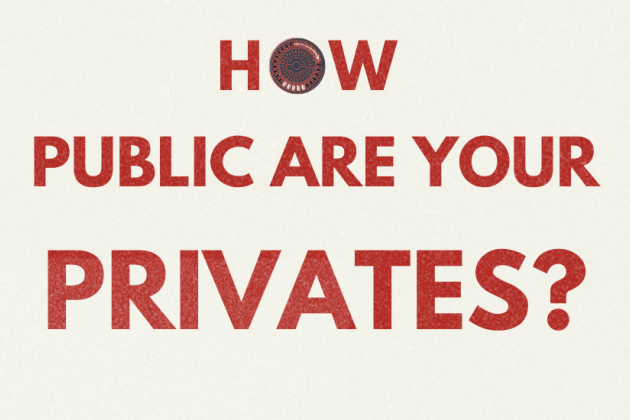
The cost of having sex is rising. Alongside housing and grocery costs, the price tag on IUDs has ballooned towards $500. This means that more people are finding it harder to cover the cost of contraception, especially as pharmaceutical tariffs loom and job losses strip away extended health benefits. As a result—many are opting for less effective methods like the pill—even if it doesn’t align with their lifestyle or health needs.
But there’s hope. The Federal Pharmacare bill now covers the cost of prescription contraception in Manitoba, PEI, BC and the Yukon. Pharmacare is due to expand across Canada, so that no one has to choose between paying for groceries and accessing the contraception of their choice.
While the feminist sector rejoices, the fiscally frugal are wondering whether we can afford free contraception. In an era of tight budgets and market instability, it’s understandable why some wonder: why should I pay for someone else’s sex life? The truth is, you already are.
The cost of unplanned pregnancies, STIs, and sexual health complications burdens our public healthcare system. In fact, nearly half of pregnancies in Canada are unplanned. By investing in prevention tools, we save money for you and the state. A better system isn’t just possible—it's necessary, and the numbers prove it. For every 1 dollar invested in contraception coverage, up to 9 dollars is saved from the healthcare system. Without Pharmacare, we are paying more and getting less.
Doctor Wendy Norman, a leading advocate for universal contraception summarizes the data: "it will always cost the government more to manage unintended pregnancies than it will to make contraception free.”
Beyond saving healthcare costs, universal contraception contributes to our economy by creating a more resilient workforce. When contraception is in the hands of those who need, it allows people to choose if or when they have children, improving opportunities for education, and employment, which in turn impacts their income, mental health, family stability and their children’s wellbeing. Universal contraception empowers people to have control over the direction of their life, allowing individuals, families and communities to thrive.
This policy is hugely popular, with 8 and 10 Canadians across regions and political stripes supporting Pharmacare. Despite this broad support, several parties have failed to back its full implementation. Designed to provide free access to essential medications—starting with diabetes treatments and contraceptives—Pharmacare still lacks national coverage. With only three provinces and one territory signed on, most Canadians remain unprotected—leaving their health and access to life-saving medications at risk in the face of trade disputes and rising drug costs.
Prior to the trade war, one in four Canadians were cutting back on essentials or going into debt to afford medication. Without the full implementation of Pharmacare across Canada, this number will increase.
As we enter an election premised on the question: What should Canada do in the face of American threats?—we must not lose sight of what makes us distinct.
I’m not saying IUDs are our first line of defense against Trumpism, but they do represent a Canada worth fighting for: one where everyone has the freedom to make choices about their bodies—free from financial and political barriers.
Universal healthcare is not just a Canadian value—it’s the Canadian value. And yet, we remain the only country in the world with universal healthcare but no universal drug coverage. Tommy Douglas, the father of our healthcare system, imagined a Canada where everyone could access the medication they need to live full and healthy lives. Pharmacare lays the foundation for this vision, and represents the largest expansion of our healthcare system in a generation. We can’t allow our leaders to weaken or walk away from this opportunity.
Now that party platforms are released and the race is tightening, voters deserve clarity from our leaders: can Canadians count on Pharmacare from coast to coast to coast?
Some argue that we can’t afford social programs in times of economic uncertainty. But history—and data—shows the opposite: social programs are the backbone of a resilient economy. Public programs create millions of jobs, add billions to the economy and ensure no one falls through the cracks. With so much to worry about in our economic future, no one should have to stress about affording the medication they need.
Access to prescription drugs, including contraception, shouldn’t depend on your postal code or what insurance you have. A factory worker in Manitoba deserves the same access to contraception as a university student in Toronto. As intra-provincial trade barriers are dismantled to build a united Canadian economy, we must break down the inequitable barriers that stand in the way of care for all.
If Team Canada could come together around one thing in this moment of global uncertainty, let it be this: healthcare should be for everyone. No one should be left behind simply because they can't afford the medication they need.
Universal contraception might be a rare policy where Right meets Left. Whether you value public programs or private savings, it's a win-win. Turns out your privates can go public—and everyone benefits.
About the Author
Quinn Lazenby, Toronto ON.
Quinn is a Communications Strategist at Action Canada for Sexual Health and Rights. Since 2023, Quinn has spearheaded the organization's communication strategy to make universal contraception a reality from coast to coast to coast. Through press releases, parliamentary petitioning, policy briefs, and the power of memes, their work has helped drive growing support for Pharmacare.